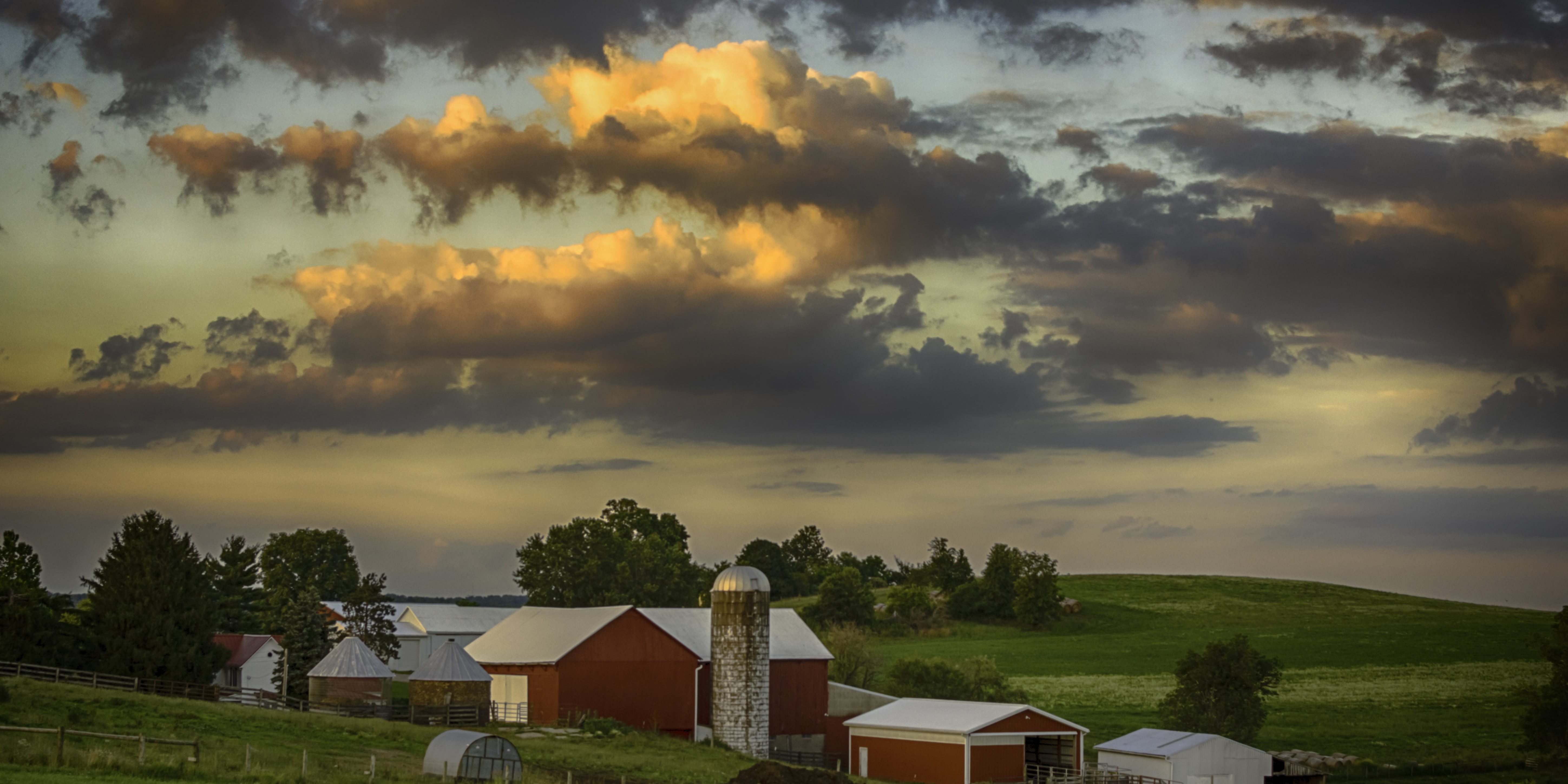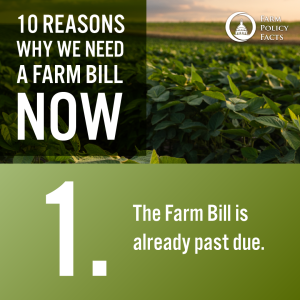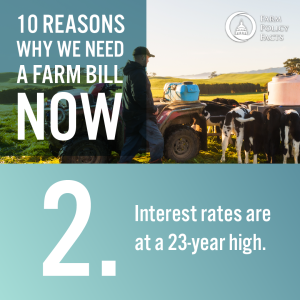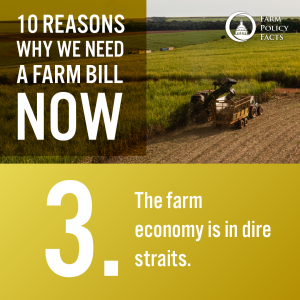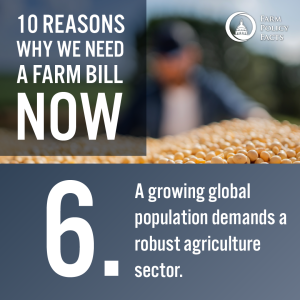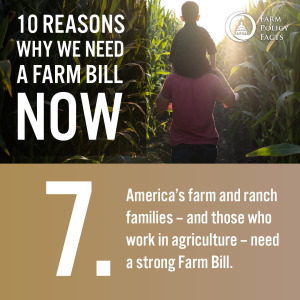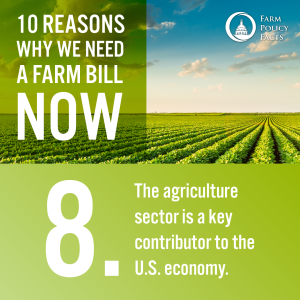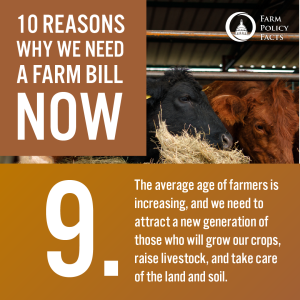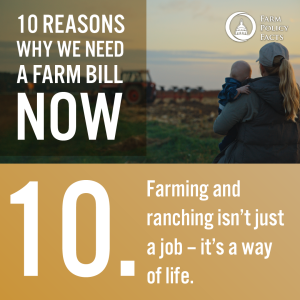When it comes to the federal budget, there is no better investment than smart farm policy. That’s why we’ve been sharing our top 10 reasons why we must pass a Farm Bill this year.
Did you know that the 2018 Farm Bill expired on September 30, 2023? Farm and ranch families are facing rising input costs, declining crop prices, and a myriad of other challenges with only an outdated safety net to back them up.
Did you know that farm interest expenses are the fastest growing production expense for producers, hitting nearly $35 billion in 2023? That’s a nearly $10 billion increase over the year before – and why it’s critical to pass a strong Farm Bill this year.
Did you know that over 50 percent of agricultural economists believe the U.S. agriculture economy is already in a recession? A Farm Bill that invests in critical infrastructure for our rural communities is past due.
Did you know that net farm income, a broad measure of earnings by USDA, has declined by over 23% since 2022? The next Farm Bill must provide a strengthened safety net for the producers who are reeling from this decline.
Did you know that the agricultural trade deficit is projected to reach $42.5 billion in FY 2025? By funding programs such as the Foreign Market Development program and Market Access Program, the Farm Bill helps producers expand market access abroad.
Did you know that the global population is expected to reach 10 billion by 2050, and we will need new arable land the size of India to feed everyone unless producers can produce more with less? A strong Farm Bill helps achieve this goal.
Did you know that 10.4% of U.S. employment can be attributed to agriculture, food, and related sectors? Even in times of uncertainty, America’s farm and ranch families roll up their sleeves to get the job done.
Did you know that agriculture, food, and related sectors made up nearly 6% of the U.S. GDP in 2023? Strengthening the Farm Safety Net ensures that the agriculture sector can maintain its status as a key contributor to the U.S. economy.
Did you know that the average age of the farmer is over 58 years old? The next Farm Bill must support the next generation of farmers by ensuring access to a strong safety net, including a strong commodity title, ample credit, crop insurance, and other key tools.
Did you know that 97% of farms are family owned and operated? A strong Farm Bill with a meaningful farm safety net ensures that the next generation will have the opportunity to keep the tradition going.
Read more about how a storm is brewing in rural America, and follow us on Facebook, X, and Instagram.

